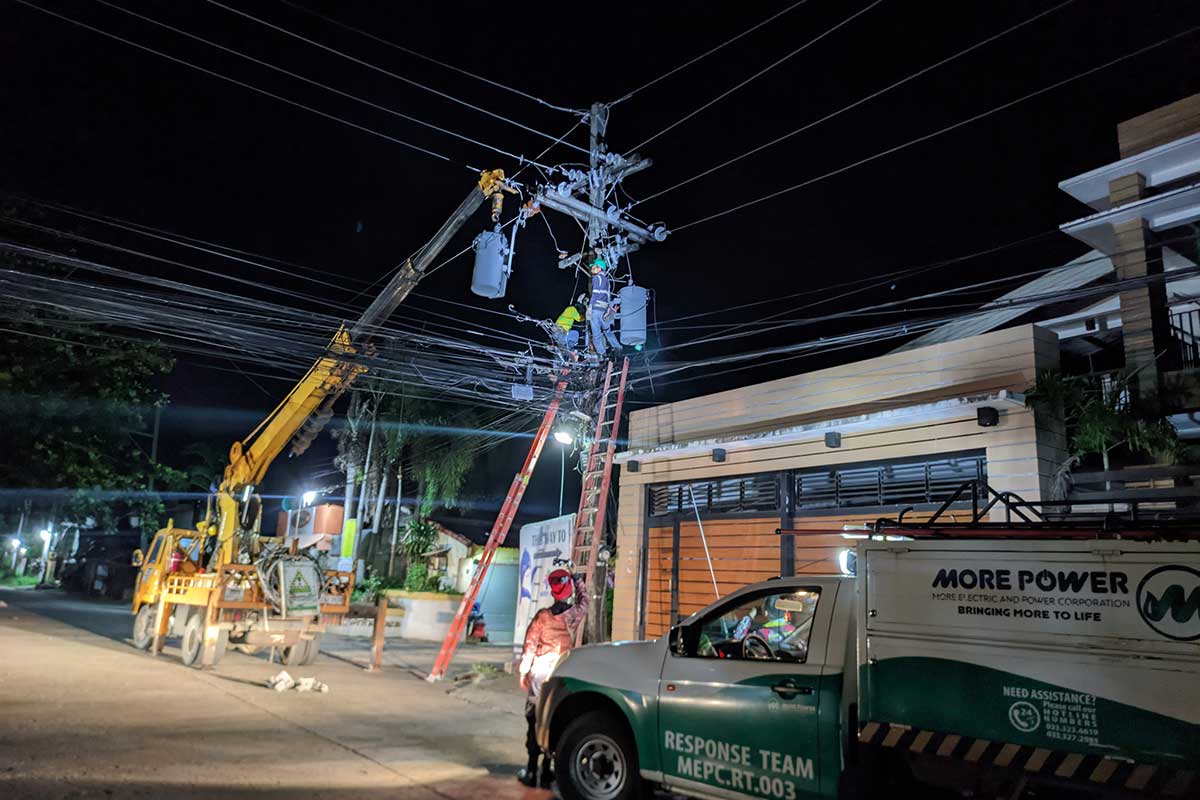
By Joseph B.A. Marzan
MORE Electric and Power Corporation (MORE Power), Iloilo City’s power provider, on Friday explained that larger uncertainty of power prices in the spot market caused the slight increase in electricity rates.
Niel Parcon, MORE Power’s Corporate Planning and Regulatory Department head, told Daily Guardian on Air that the increase was due to the unpredictable movement of power rates in the Wholesale Electricity Spot Market (WESM).
MORE Power draws around 5 percent of Iloilo City’s power demand from the WESM, particularly during peak hours of 10 am to 4 pm.
The remaining 95 percent is the base load supply from the Power Sector Assets and Liabilities Management (PSALM) via its geothermal plants.
Parcon said that while PSALM’s rate was “relatively stable” at an average of P3.54 per kilowatt hour (kWh), WESM’s pricing was “extremely volatile”.
From an average of P3 to P5 per kilowatt-hour (kWh) until February, WESM prices started moving up and down every 15 minutes in the beginning of March. On certain hours of the day, price reached P32/kWh or even higher, with the highest at P41.
This caused MORE Power to increase its rates by P0.40 from February to March and another P0.41 from March to April.
Parcon said the summer season and the gradual reopening of businesses amid the COVID-19 pandemic also increased the demand for and price of electricity.
“You can see there that it is too volatile, that if you don’t have a contract with stable power supply, your customers will be exposed to very uncertain prices. It would be very dangerous to the consumers to budget their expenses on uncertain rates,” said Parcon.
He added that the city’s demand for electricity is between 80 and 100 megawatts (MW), and even peaked at 116 MW.
Why not draw all of the city’s demand for power from PSALM?
Parcon said it would be detrimental to the customers, as they will have to pay for electricity that they will not use, and the rates will go up by 30 percent.
“You cannot say that you will contract 100 MW but will only pay for 80 MW consumed, you will have to pay for the excess supply which is a form of take-or-pay which will affect the consumers. We don’t want that for the customers
He explained that the different demand for energy in different times of the day is a factor in the supply profile of MORE Power and the city.
“Consumption is not the same at any given hour, like in the day, malls are open and demand is higher, but at night we sleep and that consumes [less energy], so it would turn out that there are different intervals of energy bought in each hour,” he said.
“It would be impractical for us to buy from base load plants like that of PSALM because that would mean that we would have to pay for its 24-hour operation, which we could not use because we only use that for our mid-merit [interval] of 9 to 6, we will be at a loss and rates would still go up,” he added.
Last April 28, MORE Power announced an increase of its rate in the month of April to P7.23 per kWh from P6.82 in March.
The power rate already includes generation charges, distribution charges, transmission charges, systems loss, metering charges, supply charges, value-added taxes, and other government-mandated charges.


















